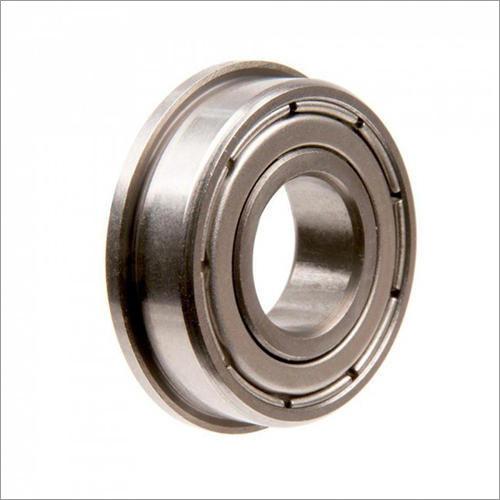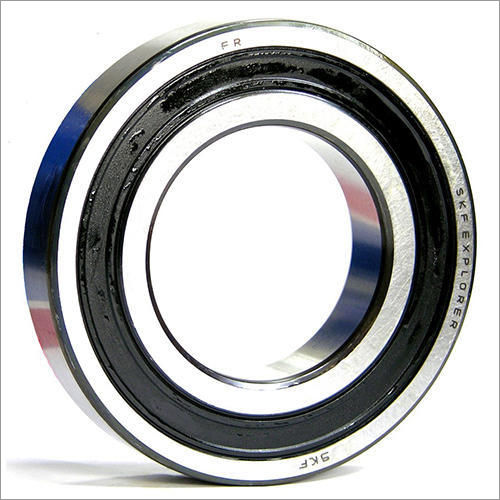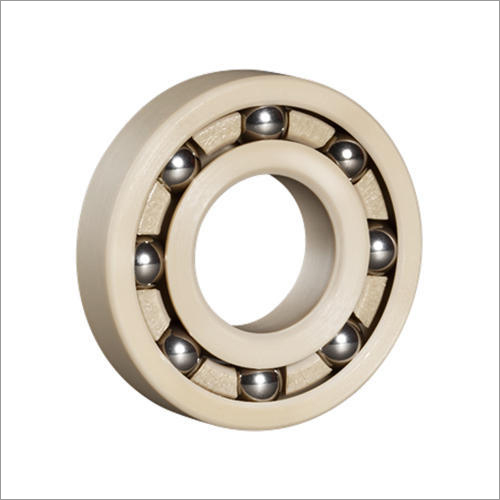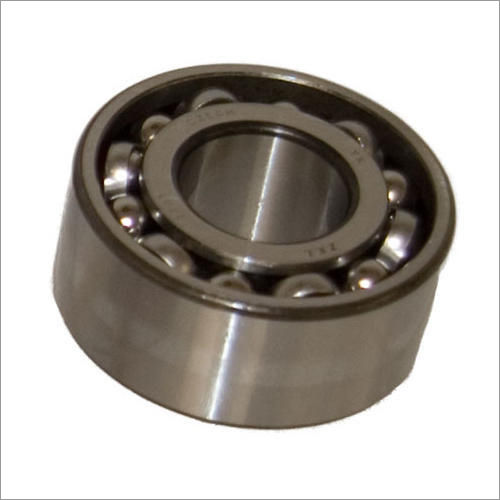Contact Ball Bearings
Price 465 INR/ Piece
Contact Ball Bearings Specification
- Thickness
- 16 mm
- Precision Rating
- P6 / ABEC-3
- Retainer
- Steel
- Cage Material
- Pressed Steel
- Lubrication Type
- Grease / Oil
- Inside Diameter
- 30 mm
- Bearing Type
- Contact Ball Bearing
- Material
- Chrome steel
- Structure
- Single Row
- Seals Type
- Open / Sealed
- Number Of Rows
- 1
- Bore Size
- 30 mm
- Outside Diameter
- 62 mm
- Limiting Speed
- 8500 RPM (Grease), 11000 RPM (Oil)
- Load Capacity
- Dynamic - 29 kN, Static - 18 kN
- Dynamic Load Rating
- 27800 N
- Finish
- Polished
- Temperature Range
- -40°C to +120°C
- Corrosion Resistance
- Yes
- Manufacturing Technique
- CNC Machined
- Static Load Rating
- 16300 N
- Application
- Automotive, Industrial, Machinery
- Vibration Level
- V1, V2
Contact Ball Bearings Trade Information
- Minimum Order Quantity
- 1000 Pieces
- Supply Ability
- 1000 Pieces Per Day
- Delivery Time
- 1 Week
About Contact Ball Bearings
We have been serving our clients with a quality tested range of Contact Ball Bearings in the market. These are ideal for use in pumps, gearboxes, electric motors, and clutches or other high-speed applications. Contact Ball Bearings are commonly used in the materials handling, machine tool, steel mill, and wind energy industries.
Technical Specification
| Thickness | 20 mm |
| Material | Stainless Steel |
| No. Of Row | Single Row |
| Outside Diameter | 170 mm |
| Bore Size | 60 mm |
| Usage/Application | Automotive Industry |
| Type of Bearing | Ball Bearing |
Superior Durability and Precision
Produced using CNC machining, our contact ball bearings boast high-precision construction adhering to P6 / ABEC-3 standards. The chrome steel material and steel retainer ensure longevity and excellent resistance to wear. The polished surface and corrosion-resistant properties make these bearings ideal for challenging environments, ensuring sustained performance over extended periods.
Versatile Applications Across Industries
Designed for flexibility, these bearings serve automotive, industrial, and machinery sectors. Their robust construction allows for smooth operation in both high and low temperature conditions, ranging from -40C to +120C. With variable vibration levels (V1, V2), and both open and sealed options, they adapt effortlessly to varied operational requirements across multiple industries.
FAQs of Contact Ball Bearings:
Q: How can these contact ball bearings enhance the performance of automotive and industrial machinery?
A: These bearings support high dynamic and static loads (27,800 N and 16,300 N respectively), provide high precision (P6/ABEC-3), and operate efficiently across a wide temperature range. Their superior materials and construction result in reduced maintenance needs and increased reliability for both automotive and industrial machinery.Q: What is the recommended lubrication method for optimal bearing performance?
A: These contact ball bearings are compatible with both grease and oil lubrication. For general purposes, high-quality bearing grease is preferred, especially for applications with speeds up to 8,500 RPM. For operations at higher speeds (up to 11,000 RPM), oil lubrication is advisable to maintain thermal stability and reduce friction.Q: When should I choose an open versus a sealed bearing version?
A: Open contact ball bearings are suitable for clean environments where there is easy access for lubrication and minimal contamination risk. Sealed versions are recommended in dusty, dirty, or moisture-prone settings to protect the internal components and extend bearing life.Q: Where are these contact ball bearings typically installed or used?
A: These bearings are commonly found in automotive transmissions, industrial gearboxes, and various machinery components. Their single-row structure and robust design make them suitable for applications demanding precise rotation and load handling within the specified speed and temperature ranges.Q: What manufacturing techniques ensure the quality and consistency of these bearings?
A: Each bearing is CNC machined from high-quality chrome steel, which guarantees dimensional accuracy and a consistently polished finish. Stringent quality controls and precision processes ensure the bearings meet P6/ABEC-3 tolerances and deliver reliable performance over time.Q: How does the corrosion-resistant finish benefit the end user?
A: The corrosion-resistant finish protects the bearings from rust and degradation, especially in humid or corrosive environments. This feature prolongs the bearings service life, minimizes downtime, and reduces replacement costs, making it especially valuable in demanding industrial applications.

Price:
- 50
- 100
- 200
- 250
- 500
- 1000+
More Products in Round Bearings Category
Double Ball Bearings
Price 599 INR / Piece
Minimum Order Quantity : 1000 Pieces
Number Of Rows : Double Row
Cage Material : Steel
Load Capacity : 2000 N Metric Ton
Thickness : 11 mm Feet (ft)
Double Row Ball Bearings
Price 460 INR / Piece
Minimum Order Quantity : 1000 Pieces
Number Of Rows : Other, 2
Cage Material : Steel
Load Capacity : High Radial and Axial Load
Thickness : 14 mm
Deep Groove Ball Bearings
Price 330 INR / Piece
Minimum Order Quantity : 1000 Pieces
Number Of Rows : Single Row
Cage Material : Steel / Brass / Nylon
Load Capacity : Static 3.80 kN, Dynamic 7.75 kN
Thickness : 9 mm


 Send Inquiry
Send Inquiry





 Send Inquiry
Send Inquiry Send SMS
Send SMS English
English Spanish
Spanish French
French German
German Italian
Italian Chinese (Simplified)
Chinese (Simplified) Japanese
Japanese Korean
Korean Arabic
Arabic Portuguese
Portuguese